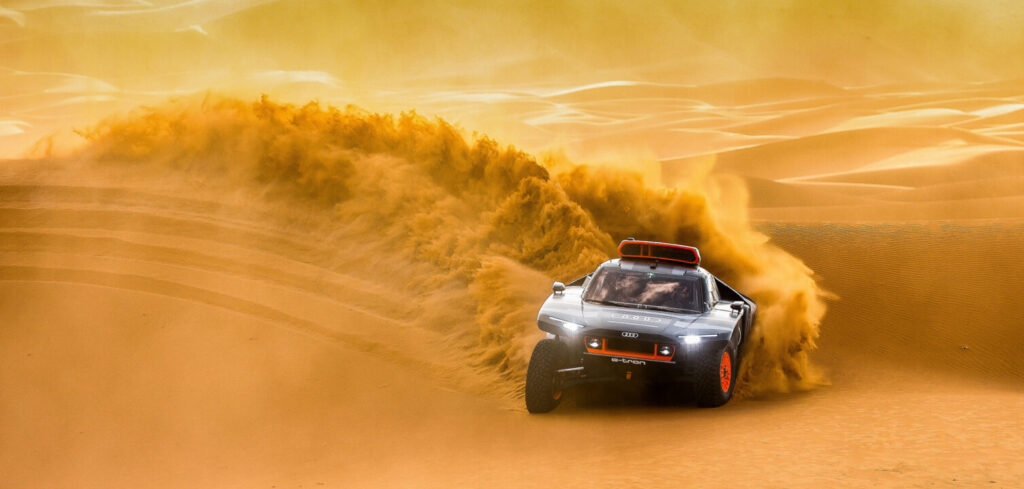Audi Sport has taken another step toward the Dakar Rally with the second test of its RS Q e-tron in Morocco.
The tests, carried out in the second week of November, covered high-speed tracks, gravel roads, dune mountains and dried-out riverbeds. Within an extremely tight project timeframe of little more than 12 months, the team has developed the RS Q e-tron to such an extent that the team is confident it can now handle daily off-road distances in testing equaling the length of a Dakar stage.
“The entire team is focusing its energy on continuing the development under the toughest conditions,” said Arnau Niubó Bosch, head of test engineering. “It was impressive how important findings flowed back to Neuburg from Morocco at a daily pace. As a result, our three rally cars currently under construction for the Dakar Rally will have the latest technical status. At the same time, logistical preparations are in full swing.”
In the race against time and against bottlenecks in the supply of individual components due to pandemic-related restrictions, the team reeled off a concentrated program. The three driver teams ran prototype chassis number 103 more than 2,500km through the toughest terrain.
The various system tests included imposing artificially high temperatures on the RS Q e-tron. Stéphane Peterhansel moved the desert racer through a dry riverbed with the cooling air intakes deliberately taped off to simulate high outside temperatures – an ordeal that the prototype, with its electric drive with energy converter, completed “without complaint”.
There were issues to contend with: tire damage on the rocky tracks, a suspension wishbone bent by a rock, a leaking driveshaft sleeve and other components that required replacement, alongside minor bodywork repairs. The car will make its competition debut at the 2022 Dakar in January.




